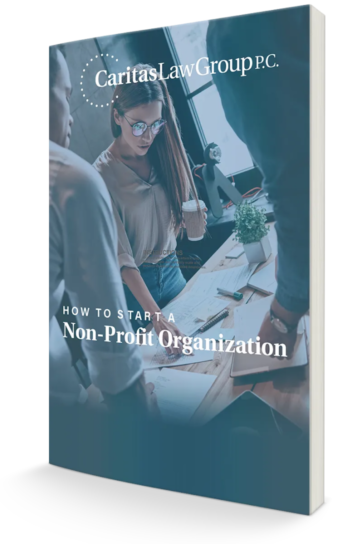For those who are passionate about a cause, the legal side of starting a nonprofit can be frustrating and time-consuming. We offer complete start-up packages for those who prefer to obtain professional assistance from attorneys experienced in representing nonprofits.
STARTUP PACKAGES
Include fixed fees that permit you to accurately budget resources and call us when you have a need, without worrying about the meter running.
We have in-depth knowledge of the tax and corporate rules applicable to nonprofits. As a result, we know where the lines are and can counsel you so that you do not cross them without being overly restrictive. Our experience includes all types of tax-exempt entities, not just 501(c)(3) organizations. We tailor documents to your organization, purpose and desired structure. We understand all of the different ways nonprofits can lock-in or share control. In addition, we help founders shape plans and make connections through our contacts, experience, and knowledge of the nonprofit sector.
ADDITIONAL RESOURCES
How to Start a Non-Profit Organization
In this FREE PDF download, you’ll learn five things to do before you form the entity, a step by step process of forming the entity, and applying for tax-exempt status.

Our fixed fee package includes all of the legal steps required to create the organization and gain tax-exempt status.
- Conferencing to discuss the purpose, programs, and budget in detail
- Reserving the name with the state of incorporation
- Drafting the articles of incorporation to conform to 501(c) requirements and state law
- Filing and publishing the articles of incorporation
- Obtaining a new EIN for the new corporation
- Conferencing with you to determine governance structure
- Drafting bylaws to reflect the governance structure
- Drafting organizational meeting minutes with required resolutions
- Drafting various governance policies that the IRS recommends including, as applicable, conflict of interest, gift acceptance, document retention and destruction, joint venture, fundraising, compensation, and travel and expense reimbursement
- Drafting and filing Form 2848 Power of Attorney
- Drafting and filing the IRS exemption application (either Form 1023-EZ, Form 1023, 1024, 1024-A) and related statements
- Representation before the IRS and response to IRS follow-up questions
- Filing and publishing the articles of incorporation providing a Board Action Calendar summarizing key governance and compliance deadlines
- Fundraising registration in the state of domicile (or one state of choice if domicile does not require registration)
- Providing an explanatory letter regarding operational rules applicable to the new nonprofit including guides to taking minutes and acknowledging gifts
- Providing a minute book of all corporate documents



We will determine a fixed fee after consultation with you.
Our fee is based on the nature of the proposed organization’s activities and our experience regarding the level of documentation and follow-up that will be required to obtain the exemption, the novelty, and complexity of the organization’s proposed activities, as well as the number of states the organization must register to fundraise in.

GET STARTED
To begin the process of creating your new nonprofit organization, reach out to us by completing the form.
